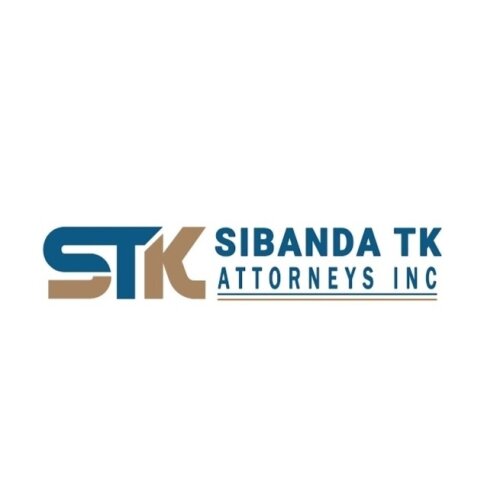Best Landlord & Tenant Lawyers in Kwamhlanga
Share your needs with us, get contacted by law firms.
Free. Takes 2 min.
Free Guide to Hiring a Real Estate Lawyer
List of the best lawyers in Kwamhlanga, South Africa
South Africa Landlord & Tenant Legal Questions answered by Lawyers
Browse our 3 legal questions about Landlord & Tenant in South Africa and read the lawyer answers, or ask your own questions for free.
- Can we evict tenants of our property if it is sold?
- May we evict the tenants of our property if it is sold. We have given them notice re this. They have not been paying rent nor deposit. We were very close of losing the house with the bank due to the tenants non payment
-
Lawyer answer by Recososa Law Firm
Hello:Under Philippine law, the rights of both the property owner and the tenants are governed mainly by the Civil Code and the Rent Control Act (if applicable depending on the rental amount). Since you mentioned that the tenants are not...
Read full answer - Eviction appeal
- Good day I had a tenant legally evicted and tool immediate occupation of my property she then went in later that day to her lawyers and got a re reentry court order, failing to disclose that I was already in the property. She and her boyfriend have broken in to... Read more →
-
Lawyer answer by SJ Law Experts
SJ Law Experts, IslamabadThank youSJ Law Experts, Islamabad [Advocates, Legal Advisors & Immigration Lawyers]
Read full answer - Is there a reason that my landlord is refusing to provide proof of putting my security deposit into an interest bearing account?
- The landlord at my former place of residence agreed to pay R8000 of my R11000 deposit after cleaning was done to the property. She provided a R2000 quotation fee but hasn't given me any other receipts to prove how the money was used. Despite that, I believe that cleaning was... Read more →
-
Lawyer answer by NARAG LAW OFFICE
That is not required by law. It is not even in the contract.
Read full answer
About Landlord & Tenant Law in Kwamhlanga, South Africa
Landlord & Tenant Law in Kwamhlanga, Mpumalanga, follows South Africa’s national legislative framework, primarily the Rental Housing Act, 1999 (as amended) and related laws. These laws aim to protect the rights of both landlords and tenants and ensure fair and equitable rental practices. Whether you are renting a residential property or managing rental accommodation as a landlord, understanding your legal rights and responsibilities is crucial. In Kwamhlanga, local practices and housing needs may also shape the experiences of tenants and landlords, often requiring clear communication, written agreements, and compliance with regulations.
Why You May Need a Lawyer
Legal guidance may be crucial in landlord and tenant matters for several reasons. Common situations where you may require legal assistance include:
- Drafting or reviewing a lease agreement to ensure fairness and legal compliance.
- Dealing with non-payment of rent or rental arrears.
- Evicting a tenant legally and in accordance with the Prevention of Illegal Eviction from and Unlawful Occupation of Land Act (PIE Act).
- Addressing unlawful eviction or harassment by a landlord.
- Resolving disputes over deposits, maintenance, or property damage.
- Understanding your rights as a tenant or landlord under local and national laws.
- Challenging unfair rental increases or contract changes.
Because these issues often involve complicated legal procedures and can have significant financial and personal consequences, consulting a legal professional helps protect your interests and ensure that procedures are carried out lawfully.
Local Laws Overview
Landlord & Tenant relationships in Kwamhlanga are governed by national laws, local by-laws, and sometimes customary practices. Some important legal aspects include:
- Rental Housing Act: Regulates the rights and obligations of tenants and landlords, including lease requirements and dispute processes.
- Written Lease Agreements: While verbal tenancy agreements are valid, written leases are encouraged to avoid misunderstandings.
- Deposit Requirements: Landlords can request a security deposit, which must be held in an interest-bearing account, and interest earned should be paid to the tenant at the end of the lease.
- Evictions: The PIE Act requires landlords to obtain a court order before evicting a tenant, and the court considers factors such as alternative accommodation and the tenant’s circumstances.
- Rent Increases: Landlords must provide proper notice (typically not less than one month in advance) and cannot increase rent during a fixed-term lease unless the contract specifies.
- Repairs and Maintenance: The landlord is generally responsible for structural repairs, while the tenant must take care of day-to-day maintenance and inform the landlord of any issues.
- Rental Housing Tribunal: Mpumalanga has a Rental Housing Tribunal to resolve disputes between landlords and tenants without the need for litigation.
Frequently Asked Questions
What should be included in a lease agreement?
A lease should clearly state the names of the parties, property address, rental amount, payment terms, deposit, duration, responsibilities of each party, cancellation clauses, and maintenance obligations.
Is a verbal rental agreement valid?
Yes, verbal agreements are legally binding in South Africa, but a written lease is strongly recommended to prevent disputes and provide proof of terms.
How much can a landlord charge for a deposit?
There is no set limit, but the amount must be reasonable. Commonly, it is equivalent to one or two months’ rent. The deposit must be kept in an interest-bearing account.
Can a landlord evict a tenant without a court order?
No, eviction without a court order is illegal. The PIE Act requires landlords to obtain an eviction order from the court after following proper procedures.
What is the notice period for terminating a month-to-month lease?
Generally, one calendar month’s written notice is required by either party to end a month-to-month lease.
Who is responsible for repairs and maintenance?
The landlord handles structural repairs and ensures the property is habitable, while the tenant takes care of day-to-day maintenance. The lease may outline specific responsibilities.
What can I do if my landlord withholds my deposit unfairly?
You can approach the Rental Housing Tribunal for assistance, present your case, and provide evidence of property condition and payment records.
How can disputes be resolved without going to court?
The Rental Housing Tribunal offers a free dispute resolution service for tenants and landlords, including mediation and arbitration.
Are there rules about increasing rent?
Yes, rent increases must be done with proper notice (usually at least one month) and in accordance with the contract terms. Large, arbitrary increases can be challenged with the Tribunal.
What rights do tenants have against unlawful eviction or harassment?
Tenants are protected under the law from unlawful eviction and harassment. If you face this, contact the Rental Housing Tribunal or seek legal assistance immediately.
Additional Resources
If you need further guidance or support regarding landlord and tenant issues in Kwamhlanga, consider reaching out to:
- The Mpumalanga Rental Housing Tribunal - assists with disputes and offers mediation.
- The Department of Human Settlements - provides advice and resources on rental housing issues.
- Local Magistrate’s Court - handles legal proceedings, including evictions.
- Legal Aid South Africa - offers free or affordable legal assistance based on means-testing.
- Community advice offices or local legal clinics - can help with initial advice or referrals.
Next Steps
If you need legal assistance in landlord and tenant matters in Kwamhlanga, consider the following steps:
- Collect all documents related to your rental arrangement (lease, payment records, correspondence, proof of payments, inspection reports).
- Identify the specific issue or dispute (e.g., unpaid rent, deposit disputes, eviction notices).
- Attempt to communicate and resolve the issue amicably with the other party, if possible.
- If unresolved, approach the Mpumalanga Rental Housing Tribunal to initiate dispute resolution processes.
- If the issue is serious or urgent (such as impending eviction or unlawful conduct), consult a lawyer or visit Legal Aid South Africa for assistance.
- Keep records of all communications and actions taken to help support your case.
Understanding your rights and responsibilities is the first step to resolving landlord and tenant issues effectively in Kwamhlanga. Legal assistance can help you navigate complex laws and achieve a fair outcome.
Lawzana helps you find the best lawyers and law firms in Kwamhlanga through a curated and pre-screened list of qualified legal professionals. Our platform offers rankings and detailed profiles of attorneys and law firms, allowing you to compare based on practice areas, including Landlord & Tenant, experience, and client feedback.
Each profile includes a description of the firm's areas of practice, client reviews, team members and partners, year of establishment, spoken languages, office locations, contact information, social media presence, and any published articles or resources. Most firms on our platform speak English and are experienced in both local and international legal matters.
Get a quote from top-rated law firms in Kwamhlanga, South Africa — quickly, securely, and without unnecessary hassle.
Disclaimer:
The information provided on this page is for general informational purposes only and does not constitute legal advice. While we strive to ensure the accuracy and relevance of the content, legal information may change over time, and interpretations of the law can vary. You should always consult with a qualified legal professional for advice specific to your situation.
We disclaim all liability for actions taken or not taken based on the content of this page. If you believe any information is incorrect or outdated, please contact us, and we will review and update it where appropriate.









